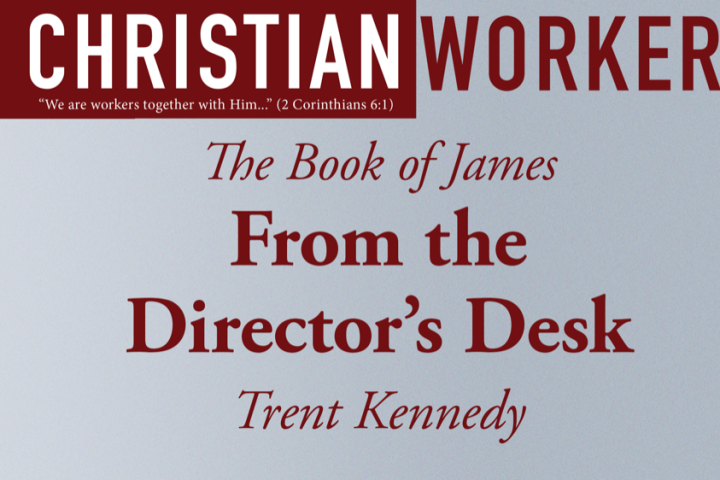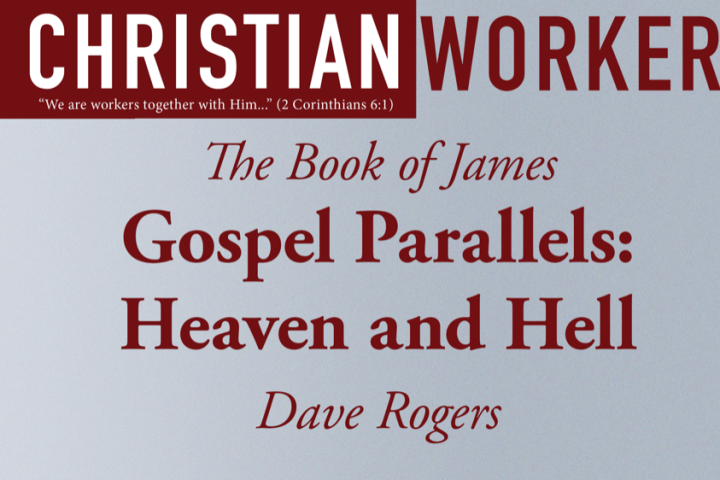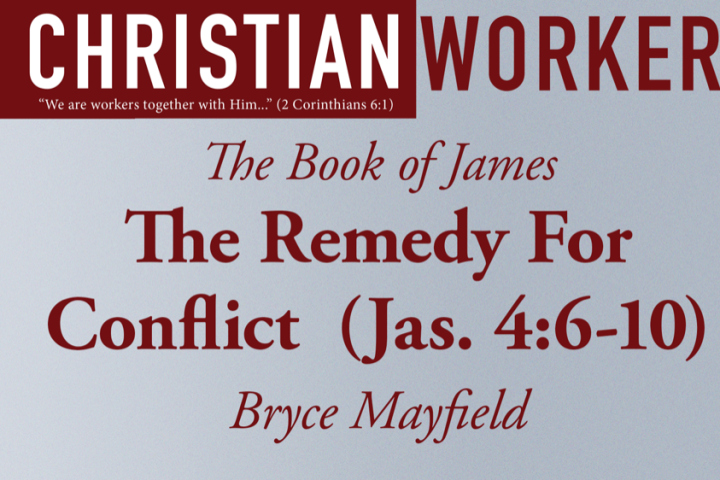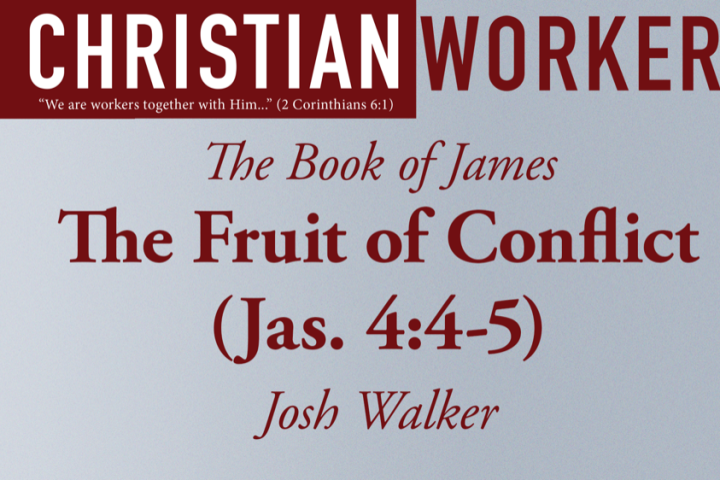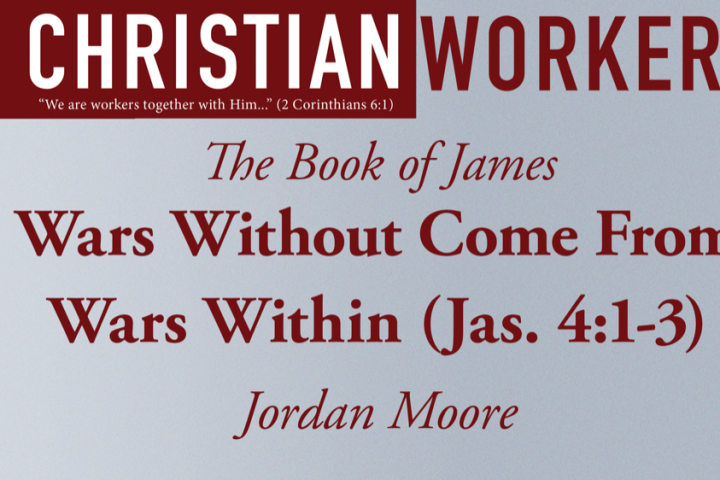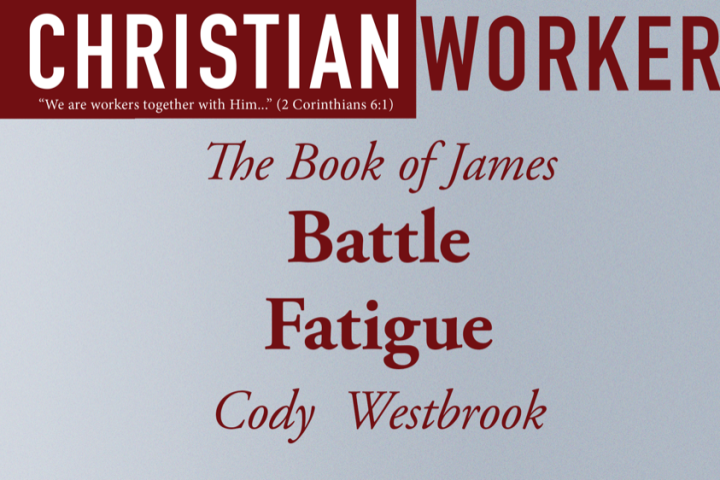Posts from August 2025
Jesus Did What!? (John 13:5)
The tongue is one of the smaller yet stronger muscles in the human body. It is a muscle often described as “tiny but mighty.” Yes, from a physical standpoint, this is true… BUT this truth also applies to its Biblical application. To illustrate just how powerful the tongue is, James gives us three illustrations of objects in this world that are small but have a great impact and control. He uses the bridle to show how a small bit can…
Tiny but Mighty (James 3:3-5)
The tongue is one of the smaller yet stronger muscles in the human body. It is a muscle often described as “tiny but mighty.” Yes, from a physical standpoint, this is true… BUT this truth also applies to its Biblical application. To illustrate just how powerful the tongue is, James gives us three illustrations of objects in this world that are small but have a great impact and control. He uses the bridle to show how a small bit can…
The Church and its Priorities
With so many unique challenges before us it is easy to lose sight of what is really important. The Bible has a great deal to say about priorities and it is important for us to ensure that our priorities are aligned correctly on an individual basis, but also on a congregational basis. First Timothy 6 lists some items that the church must prioritize. Sound Doctrine (1 Tim. 6:3-5) –Those who do not concern themselves with sound doctrine are guilty of…
Who is God? (Exodus 15)
Who is God? This is one of the most important questions mankind must ask. It is essential to life here on this earth and life after death. Praise God, for He has revealed part of Himself through His Word. (2 Timothy 3:16,17; 2 Peter 1:3, 20,21). However, with this great blessing comes responsibility. God has revealed WHO He is through His Word, but we must take the time to listen to Him through reading the Bible. With that being said,…
From the Director’s Desk (July 2025) – Trent Kennedy
When we examine the ministry of Jesus, we see compassion as it was (and is!) meant to be practiced. The compassion of Jesus is seen the following verses: Matthew 9:35-38, Matthew 14:13-14, Matthew 15:32, Mark 1:41, Luke 7:12-14, Mark 9:22, Matthew 20:34. Jesus came unto his own (John 1:11), being made in flesh and blood (Heb. 2:14). This earthly ministry brought Him into contact with people who were desperate, needy, hurt, handicapped, and misguided. It brought Him to places where…
Gospel Parallels: Heaven and Hell – Dave Rogers
A study by Northwestern University about thirty years ago surveyed the beliefs of 500 denominational ministers and revealed some startling statistics: 59% believed heaven exists; 31% believed hell exists. At the time, roughly 77% of all Americans believed in heaven, but only 58% believed in hell. In a nation once characterized by a fierce fight to obtain freedom for religion, our culture now strives for freedom from religion. Various forces actively seek to eradicate knowledge of God and Christianity, and…
The Remedy For Conflict (Jas. 4:6-10) – Bryce Mayfield
The Book of James has been accurately described as the wisdom literature of the New Testament. Much like the Proverbs of the Old Testament, this book covers a variety of topics, and it is extremely practical for the New Testament Christian. In the context of James 4, we find ourselves right in the middle of conflict. James begins the chapter by asking, “What is the source of quarrels and conflicts among you” (Jas. 4:1, NASB 95)? As he then writes…
The Fruit of Conflict (Jas. 4:4-5) – Josh Walker
Divided affection creates conflict. Compromise becomes comfortable and conviction wanes—peace vanishes, and something atrocious grows. The superior is traded for the inferior, and the sacred is exchanged for the common. What remains is hostility where love once lived and betrayal disguised as balance. The fruit of conflict is rotten. Spiritual Adulterers James does not introduce a foreign concept to his audience. Throughout the Old Testament, prophets used the imagery of adultery to chastise the children of Israel. For example, the…
Wars Without Come From Wars Within (Jas. 4:1-3) – Jordan Moore
In beauty pageants, “world peace” became a stereotypical (and sometimes satirized) answer to questions like, “if you could change one thing about the world, what would it be?” It’s an ideal everyone agrees on and no one really thinks that war is a good thing. Sure, there are people who use wars to their advantage, but everyone in their right mind sees the atrocities of war and rightfully concludes that the world is worse off because of it. So where…
Battle Fatigue
Guadalcanal Disorder, exhaustion, combat fatigue, shell shock; the Army wasn’t sure what to call it but they knew it was a major problem. Over 500,000 US Soldiers were lost due to “psychiatric collapse” during WWII. Men would shake and scream and stare emptily into the distance. Some would cry, some would run, some would wound themselves, some would desert, and some would take their own lives. Eventually an Army neurologist, captain Frederick Hanson, solved the problem. He recognized that a…




